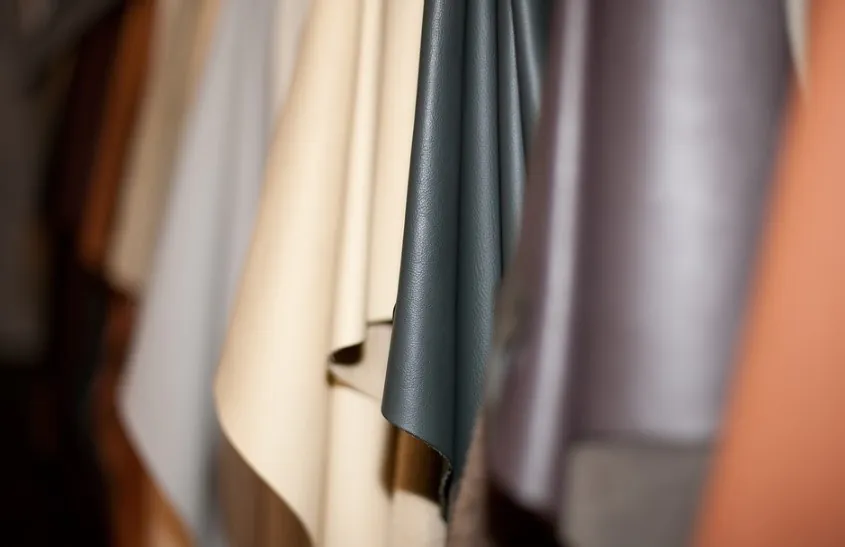The global leather industry is booming due to the growing demand of leather products worldwide, while the world’s top 10 largest leather producing countries, top leather exporters and leather importers continue to be some of the major contributors to the growth of the market. Over the recent years, the growing demand for luxury fashion products such as handbags, wallet and other fashion accessories driven by the rising spending on personal goods has resulted the rapid increase in the leather production and leather trade around the world. As the global market for leather goods continues to be lucrative, the world’s largest leather producing countries and the top leather exporters are expected to witness growing profit over the near future.
This industry fact sheet is to assist industry professionals, investors, and people in general that are interested in gaining insights into the global leather industry including:
- How much is the global leather industry worth?
- Which country produces the most leather?
- Which country is the largest exporter of leather?
- Which country imports the most leather products?
- Who are the top leather companies in the world?
Bizvibe’s smart B2B marketplace solutions help buyers and suppliers in the global leather industry to find and connect with each other, shorten sourcing and purchasing cycles, and maximise profit growth. Join today to see how BizVibe can help your business grow!
Global Leather Industry Overview
Leather industry is one of the oldest manufacturing sectors. The raw material used in leather industry is derived from the livestock or animal farming industry, then being put through several processes including tanning and finishing etc. Today, leather is still one of the most luxury materials that are used to produce a wide range of high-end products such as leather footwear, leather bags, leather garments, and so on. According to the recent report from Grand View Research, the global leather goods market size was valued at US$ 414.0 billion in 2017, it is expected to reach US$629.65 billion by 2025, representing a strong CAGR of over 5.4% during the forecast period.
The increasing spends on personal goods due to growing fashion-consciousness is one of the major reasons for the growth of this market. The rise in customer spending power, evolving lifestyles, and rising penetration of smartphones are also contributing to the growth of the market. Increasing awareness through online channels is encouraging consumers to purchase the latest and unique designs of leather goods. Furthermore, the growing number of working women across the world is also resulting in an increased interest in personal goods, such as handbags and footwear, which is contributing to market growth.
Geographically, Asia Pacific is the currently the largest market for leather and leather goods, the region has generated the highest revenue in the world for leather goods over the recent years. The developing countries such as India, China and Dubai are expected to pose the highest market demand in the near future, mainly due to the rising disposable income and rising inclination towards designer leather bags and accessories. North America also holds one of the biggest markets for this industry in terms of leather imports and leather products consumptions.
Top 10 Largest Leather Producing Countries in 2020
| Rank | Country | Ave. annual production (million sq.ft) | Share of global production |
| 1 | China | 6,170 | 25% |
| 2 | Brazil | 2,360 | 9.5% |
| 3 | Russia | 1,652 | 7% |
| 4 | India | 1,560 | 6.4% |
| 5 | Italy | 1,521 | 6.3% |
| 6 | South Korea | 1,140 | 4.8% |
| 7 | Argentina | 804 | 3.4% |
| 8 | US | 719 | 3% |
| 9 | Mexico | 642 | 2.7% |
| 10 | Turkey | 529 | 2.2% |
China
China is the largest leather producing country in the world with over 6.2 billion sq ft leather produced every year, representing more than 25% of the annual global leather production. China’s leather industry is renowned for producing heavy skin used for manufacturing belts, straps and soles, while light leather used in shoes, bags, and jackets. Most of China’s leather output is derived from light bovine skin which accounts for nearly 40% of the total production per year, making China the biggest producer of bovine skin in the world as well. The light leather of sheep and goats is the second largest leather source in China’s leather industry. With its massive livestock sector and well-established leather production and process industry, China’s dominant position in the world’s top 10 largest leather producing countries is expected to be further strengthened in the near future.
Brazil
Brazil is the second largest leather producing country in the world. Brazil’s leather and hide industry produces over 2.4 billion square feet of leather per annul. Leather production in Brazil is majorly light skin produced from bovine animals. Leather produced from bovine animals in Brazil is about 1.8 billion sq ft a year, making it the biggest contributor of Brazil’s leather industry. Sheep and goats skin make about 4 percent of the leather industry in Brazil. While other small amounts of heavy leather production also add up to make Brazil the world’s second largest leather producer.
Russia
Russia is also one of the top 3 largest leather producing countries in the world of 2020. Russia used to be the world’s largest leather producer, but its skin industry started declining after the 1990s. Now, Russia produces 1.4 billion square feet of leather annually, ranking on the third of the top 10 largest leather producers list. Most of the leather output in Russia is light leather from bovine animals. Nearly 8% of the leather comes from sheep and goat. Less than 3% of the total leather produced is heavy hide.
Other top leather producers
Other world’s top 10 largest leather producing countries in 2020 include India, Italy, South Korea, Argentina, USA, Mexico, Turkey. India is currently one the fastest growing leather markets in the world in terms of leather production and leather consumption. India is also one of the world’s top heavy-leather producers producing large amount of heavy leather from bovine animals. Italy is the largest leather producer in Europe, owing to its booming leather processing sector.
Top 10 Largest Leather Exporters
| Rank | Country | 2019 Export Value (US$ million) |
| 1 | Italy | 3,819.8 |
| 2 | USA | 1,700.4 |
| 3 | China | 909.1 |
| 4 | South Korea | 509.5 |
| 5 | UK | 338.2 |
| 6 | Mexico | 316.9 |
| 7 | Poland | 269 |
| 8 | Pakistan | 228 |
| 9 | New Zealand | 179 |
| 10 | Canada | 159.8 |
Source: UN Comtrade
When it comes to global trade, leather and leather products are among some of the most traded products globally. The leather industry trade is presently exceeding US$ 85 billion in a year and this is expected to grow further as the rising population and growing income will create more demand for leather products. Although Italy still remains as the world’s largest leather exporter by value, the major leather exports has shifted from developed countries in Europe and North America that were previously dominated global leather exports to the emerging and developing countries such as China, South Korea and Mexico.
Currently, Italy is the world’s largest leather exporter by value, exporting over $3.8 billion worth of leather to the global market, while China is the largest leather exporter by volume, representing nearly 36% of the world’s total leather export volume. However, China’s share in the global leather exports has been declining over the past decade, due to the country’s economic focus shifting from manufacturing to high tech and service sectors.
Other world’s top 10 largest leather exporters by value include USA, South Korea, UK, Mexico, Poland, Pakistan, New Zealand, Canada. Their positions in the global leather exporting market are expected to be stable mainly due to their industrialized leather production activities coupled with well-established supply chains.
Top 10 Largest Leather Importers
| Rank | Country | 2019 Import Value (US$ million) |
| 1 | Italy | 2,413.6 |
| 2 | China | 967 |
| 3 | Mexico | 772.3 |
| 4 | USA | 603.5 |
| 5 | Romania | 442.7 |
| 6 | Portugal | 418.7 |
| 7 | Poland | 388.7 |
| 8 | South Korea | 385.1 |
| 9 | Hungary | 238.1 |
| 10 | Japan | 192.9 |
Source: UN Comtrade
Apart from being the world’s largest exporter of leather, Italy is also the world’s largest leather importer by value in 2020, according to the UN’s trade statistics. Italy is currently leading the global leather trade market, mainly attributed to its advanced leather processing sector in the thriving fashion industry, which has uplifted the demand for leather fashion products such as handbags and wallets among the consumers worldwide. The luxury leather products are particular popular among consumers who are demanding premium range goods as a fashion statement. Europe-based companies, such as Gucci, Gianni Versace, and Louis Vuitton, are the key players involved in the manufacturing of leather-based luxury goods.
China is another one of the world’s largest leather importers, mainly driven by the rapidly rising demand in the downstream sectors such as footwear, fashion accessories and furniture products. Other world’s largest leather importers such as Mexico, USA, Romania, Portugal, Poland, South Korea, Hungary, Japan are also benefited from their booming leather processing and leather products industries.
Join BizVibe, and discover thousands of world’s leading leather suppliers and buyers today!



